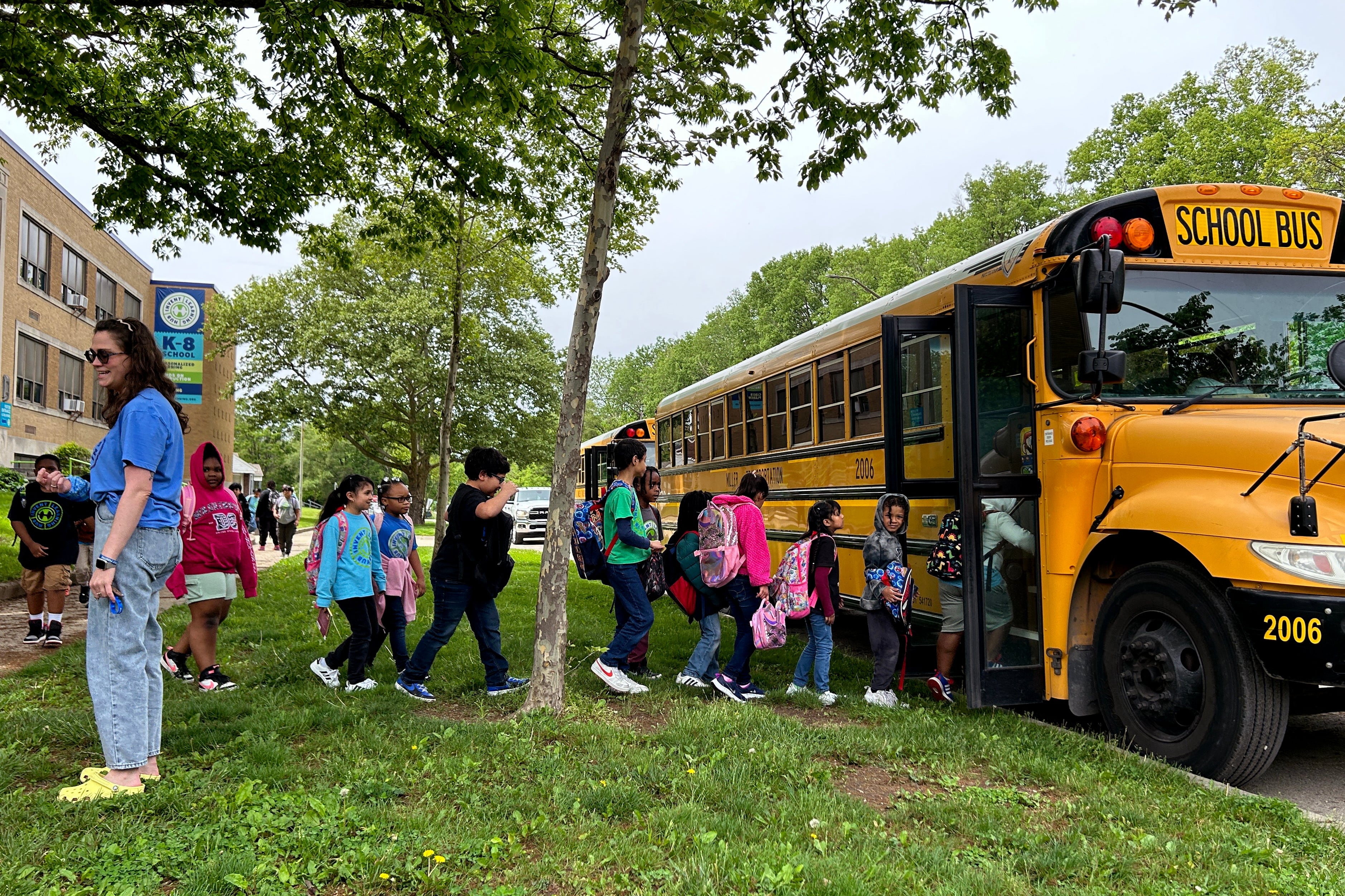Sign up for Chalkbeat Indiana’s free daily newsletter to keep up with Indianapolis Public Schools, Marion County’s township districts, and statewide education news.
Across the state, students are heading back to school soon. Students in Beech Grove and Warren Township start classes this week, followed by the rest of Marion County’s districts next week.
With a new school year comes new rules about cell phones in classrooms, a new pilot program for shorter but more frequent state testing, and a new policy on holding back students who can’t read based on third grade reading exams.
Read more about these changes and others you’ll notice this school year:
Check for school bans on cell phones
A new Indiana law requires school districts to ban cell phones and “any portable wireless device” from class time.
The ban covers phones, tablets, laptops, and gaming systems, as well as any other devices that can provide communication between two parties. But it’s up to each school district to decide on the exact policy.
There are some exceptions for educational purposes (including Individualized Education Programs), emergencies, and health care.
Some students will take more, shorter state tests
The Indiana Department of Education is piloting a checkpoint-based ILEARN this school year as an alternative to one high-stakes exam at the end of the year. More than 70% of schools opted into the pilot program, the department said.
The aim is to make the data more actionable throughout the school year for students, families, and teachers, instead of having to wait for results at the end of the year.
The pilot program will have three checkpoints throughout the year and a shortened summative assessment at the end of the year, per the department. The change is expected to be made for all students in the 2025-26 school year.
Schools and parents must meet about chronic absenteeism
Parents of chronically absent students in kindergarten through sixth grade will be required to meet with schools to create a plan and receive wraparound services to improve attendance, under a new law on truancy prevention.
The law also requires school officials to report truant students to the prosecutor’s office, and requires prosecutors to tell parents that they could be held legally accountable for their children missing school.
More students could be held back
More students could have to repeat the third grade, due to a new law that tightens the state’s policy for remediation. The policy doesn’t start until the 2025-2026 school year, but will be based on test results from the coming school year.
Retention has long been part of Indiana policy. It’s become less common in recent years, with thousands of students “socially promoted” over the years. But now, students have to pass the IREAD-3 to move to fourth grade.
There are some exemptions including for some students with an IEP and some English learners as well as students who pass the math portion of the statewide exam.
Additionally, parents have an opportunity to appeal a remediation recommendation if they believe their student meets one of the exemptions.
COVID relief funding ends for schools
Schools have until September to commit the third and final round of federal COVID funding — known as Elementary and Secondary School Emergency Relief, or ESSER. This means districts may already be looking for new ways to fund programs and positions supported by these dollars.
The state spending tracker shows the state has reimbursed schools for about 87% of available federal relief funds as of July 19. However, the tracker doesn’t capture schools’ expenditures in real time.
Chalkbeat Indiana Reporter Aleksandra Appleton contributed to this article.
MJ Slaby oversees Chalkbeat Indiana’s coverage as bureau chief. She also covers access to higher education and Warren Township Schools. Contact MJ at mslaby@chalkbeat.org.





